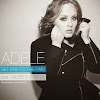I find the list of "what to include in your query" to be much shorter than the "do not" list. Here's what you need: salutation with agent's name, about two paragraphs (3-6 sentences each) of summary/back cover blurb, briefly about the author, sign out.
Your query should look something like this:
Dear (name of agent),
about the ms
little more about the ms--word count and genre included
about the author
Thank you for your time. I look forward to hearing from you.
Sincerely,
(name)
(email)
(website if applicable)
OR your usual closing signature
Nice and clean, right? This is my favorite sort of query. It launches right into the book with the main character, a tiny bit of world building if it's fantasy, sci-fi, dystopian, etc, the main struggle, love interest. Done. The author bio is in first or third person (no preference) and includes relevant information.
You can also do another format:
Dear (name),
(title) is a (word count) (genre). I'm submitting to you because you mentioned on your blog you want to see more (genre) queries/you like (specific book)/you represent (specific author)/my friend is your client-mother-brother-co-worker. One line hook.
about the ms
little about the author
Thank you for your time. I look forward to hearing from you.
Sincerely,
(name)
(email)
(website if applicable)
OR your usual closing signature
Note the use of the word SPECIFIC several times throughout the opening paragraph. I can always tell when someone hasn't actually done their research. If you like my blog or I've mentioned liking one of your comparable titles or we've met somewhere, be specific. Anyone can say "I like your blog, here's my query." (Yes, it's happened.)
Your "about the ms" should be simple and to the point. By simple, I mean use simple sentences. Don't get fancy. Agents read a lot of queries daily, and I for one tend to skim-read--if I find something of interest, I slow down. But if your sentences are too long, packed with info, convoluted, I can't retain as much info as quickly (and there's a good bet your ms will look like that too). By "to the point," I mean get in and get out. Here's an example:
(name of main character) is (brief description). She's thrust into (main conflict). She must rely on (love interest) which is an issue because (personal dilemma). (evil character) will stop at nothing to (what's at stake).
Your query is obviously going to be more involved. But there are the main points you need to hit.
- Why should we care about you main character? Who is she/he? How will we connect with him/her?
- What's her life like before the problem?
- What and how does the main conflict get thrust upon her?
- Who is the love interest? Or other character of large importance--keep this absolutely limited to one or two people (three on occasion). You don't want to bombard the agent with info and characters; also, it takes to long to portray their significance and "why we should care."
- Who is the bad guy? This can be grouped up there with the main conflict. Remember your "man vs man" "man vs self" "man vs nature" from third grade.
- What's at stake? Vitally important. Is the world going to implode? Is the main character going to lose her family? Her sanity? Her self respect? The chance to avenge her father?
Ask all the questions you want to ask. Next week, I'll answer them.
Happy writing!




0 Yorumlar